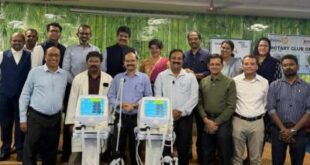The liver in a human body plays a crucial role in digestion and has many necessary functionalities that are unknown to most people. From producing bile to carrying away waste and breaking down fats in the small intestine during digestion, a liver performs many roles. It is also responsible for the production of proteins for blood plasma, conversion of glucose into glycogen amino acid regulations, and more.
Diseases related to the liver–
Non-alcoholic fatty liver, Hepatitis B, and C have been highlighted as the three major killer diseases of the liver.
Hepatitis B Infection in India
Prevalence of Hepatitis B infection national average of 15-20% is a matter of great concern for the governments and society and 30% of all cases of liver cirrhosis in the world are caused by Hepatitis B infection.
Hepatitis C Infection in India
As per the reports, 25% of patients from South India who have undergone liver transplants had Hepatitis C infection, and 20% due to lifestyle diseases like alcohol and non-alcoholic fatty liver disease.
Speaking on the occasion of “World liver day” Dr. Rajasekhar Perumalla, Senior Liver Transplant Surgeon, Department of Liver Transplantation, Kamineni Hospital, LB Nagar, Hyderabad highlighted the alarming increase in the incidence of the liver diseases among the population and various treatment options available in India that can treat them successfully. He further added diseases related to the liver are reversible if treated in time Therefore people need mass awareness on prevention and early detection of liver and the related diseases
Prevention against Liver Related Diseases
Lifestyle modifications, such as control of diabetes, weight loss, increased exercise, getting good sleep, and eating healthy foods aid in improving the general liver condition.
Say NO to Alcohol, Smoking, and Drugs: Alcohol, Smoking, and Drugs can damage or destroy liver cells. Even don’t be the target of passive smoking.
NAFLD (Non-Alcoholic fatty liver Disease) can reach epidemic proportions. Experts have also recommended a loss of nine to 10 percent of body weight and moderate exercise three to five times a week to help reduce the risk. Exercise coupled with a moderate caloric-restricted diet utilizing low-glycaemic foods is considered optimal for preventing NAFLD.
Maintain Weight Management as Obesity is a cause of concern amongst the youth of India, due to their sedentary lifestyles, consumption of junk fatty foods, with no exercise regimen. The outcome of the obesity is Non-alcoholic fatty liver disease (NAFLD) and steatohepatitis.
 Newspatrolling.com News cum Content Syndication Portal Online
Newspatrolling.com News cum Content Syndication Portal Online







